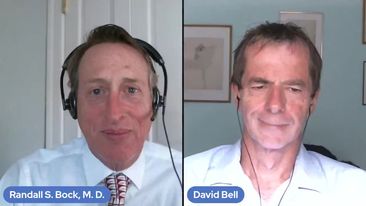In an era marked by uncertainty, skepticism, and a thirst for answers, the discussion surrounding public health, the pharmaceutical industry, and the COVID-19 pandemic has ignited a passionate debate. From the very onset of this global health crisis, voices of doubt have emerged, questioning the narrative presented by governments and pharmaceutical giants. In this article, we delve into these concerns, explore the intricacies of vaccine development, and ponder the broader implications of this discourse.
Table of contents
The Shadow of Skepticism
The Narrative Under Scrutiny
At the heart of the matter is skepticism, an emotion that has flourished amid the pandemic’s turmoil. The official narrative, which urges vaccination as the ultimate solution, faces a formidable wall of doubt. People are asking questions, seeking transparency, and demanding accountability.
Pharmaceutical Influence on Policies
One question looms large: Does the pharmaceutical industry exert undue influence over government policies? Critics argue that the immense financial power of pharmaceutical giants may sway the direction of public health strategies, raising concerns about conflicts of interest.
Suppression of Alternative Viewpoints
Amid this heated debate, some voices have been muffled or silenced altogether. The suppression of alternative viewpoints fuels the perception of a one-sided narrative, further fueling skepticism.
Diverging from Immunology Knowledge
Traditionally, vaccines align with established principles of immunology. However, some argue that the COVID-19 vaccine narrative may not completely harmonize with this knowledge, casting a shadow of doubt over the inoculation campaign.
Trials and Safety Data
Scrutiny extends to the scientific rigor behind vaccine development. Skeptics emphasize the need for proper trials and robust safety data before embracing any vaccine as a panacea.
Lingering Skepticism
Even as vaccination efforts continue, skepticism persists, with individuals and communities grappling with vaccine hesitancy. A deep-seated skepticism remains, often fueled by anecdotal evidence and mistrust.
The Nexus Deepens
The Emergency Use Authorization Debate
The Emergency Use Authorization (EUA) has been a hot-button issue throughout the pandemic. Critics argue that this process, expedited due to the crisis, may not have afforded adequate scrutiny.
Vaccines in Older Populations
Safety and efficacy concerns, particularly among older populations with comorbidities, continue to haunt the vaccination discourse. The debate questions whether vaccines are universally beneficial.
Vaccination vs. Natural Immunity
A pivotal question arises: Is vaccination the sole means of controlling the pandemic, or does post-infection immunity deserve more attention? The debate suggests that alternative strategies may be overlooked.
Science or Speculation?
The push for vaccination sparks contemplation. Does it rest on a solid scientific foundation, or is it fueled by speculation and the pharmaceutical industry’s interests?
The mRNA Vaccine Conundrum
The advent of mRNA vaccines adds another layer to the debate. Skeptics ponder the mechanism of action, raising questions about potential long-term effects.
Toward Informed Consent
Transparency and Informed Consent
Central to the discourse is the importance of transparency regarding vaccine risks. Advocates emphasize the need for individuals to make informed choices about their health.
The Mandate Dilemma
The specter of mandatory mRNA vaccines looms on the horizon. The debate questions the boundaries of personal autonomy and government intervention.
Beyond Vaccination: Ideals and Realities
Exploring the Fascism Paradox
The conversation broadens its scope to encompass the concept of fascism, examining the interplay of government mandates and corporate interests in the context of public health.
The Constitutional Safeguard
The United States Constitution takes center stage as a safeguard against authoritarianism. Debaters invoke the Constitution’s principles to frame their arguments.
Global Ramifications
The debate acknowledges the global ramifications of government policies and pharmaceutical industry influence, particularly in regions like Africa, which remains skeptical of Western corporations due to its colonial history.
Public Health’s Role
The role of public health in either supporting or opposing fascism is a pivotal topic. Advocates argue that public health must serve as a bulwark against overreach.
The Imperative of Critical Thinking
Nurturing Critical Thinking
Ultimately, the discourse underscores the importance of critical thinking and an educated population. It is a call to arms, urging individuals to navigate these complex issues with discernment.
Conclusion
In the shadow of the COVID-19 pandemic, the nexus of public health, pharmaceutical giants, and skepticism looms large. While vaccination remains a critical tool in combating the virus, the debate surrounding it has revealed a complex tapestry of concerns. Transparency, informed consent, and critical thinking are the guiding lights that must illuminate the path forward. As we navigate this turbulent terrain, the questions raised will shape our collective response to not only this pandemic but also future public health challenges.
FAQs
While vaccines have undergone rigorous testing, concerns about their safety, especially in specific populations, persist. Consult with healthcare professionals for personalized advice.
Skepticism arises from a combination of factors, including misinformation, historical vaccine controversies, and concerns about corporate influence.
The EUA is a mechanism that allows for the accelerated approval of medical products during emergencies. It has been used during the COVID-19 pandemic to expedite vaccine distribution.
No, mRNA vaccines do not alter our DNA. They work by teaching our cells to produce a harmless piece of the virus to trigger an immune response.
Promoting critical thinking requires education, access to reliable information, and open dialogue. Encouraging individuals to question, research, and think critically is essential.
